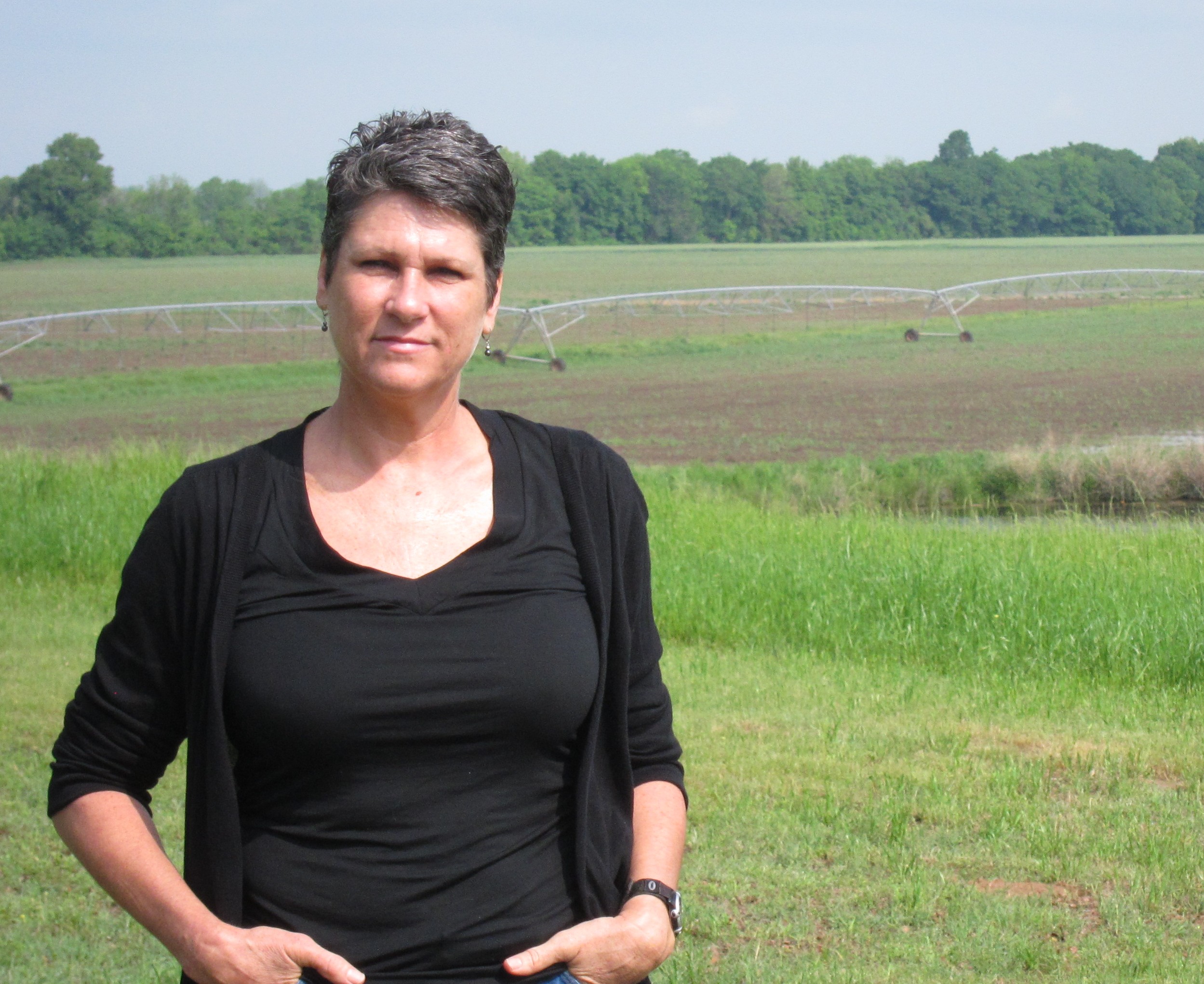Landowners and Pipelines Look to Legislature for Eminent Domain Reform

Photo by Terrence Henry/StateImpact Texas
The Keystone XL pipeline under construction in East Texas. The state legislature is considering plans to change how pipelines use eminent domain in the state.
The controversial Keystone XL pipeline, which would take heavy crude oil from sand pits in Canada to refineries on the Gulf Coast of Texas, is getting new scrutiny after an oil spill from another pipeline in Arkansas carrying that same kind of heavy oil.
Environmental groups say that allowing the Keystone XL pipeline, owned and operated by the pipeline company TransCanada, will harm the climate and risk severe spills, while the oil industry says pipelines are the safest way to move the fuel, and that oil will help the economy and national security. The President’s getting pressure from both sides to decide whether or not to allow the pipeline to cross the Canadian border. But with our without presidential approval, the Keystone XL pipeline is coming to Texas, where it has brought another issue into the spotlight: property rights in an industry-friendly state.
“For Texas, in particular, we’re going forward with the Gulf Coast project,” Corey Goulet, TransCanada’s Vice President for the Keystone Pipeline project, told StateImpact Texas. That section of the pipeline will run from Cushing, Oklahoma to the Texas Gulf coast, as part of the existing Keystone pipeline that already goes from Oklahoma to Canada.
“We’re about half complete with that construction. We think we’ll be done — what we call mechanically complete — by the fall of this year,” Goulet said. “We’ll start to introduce oil into the pipeline. And by the end of the year we hope to be in full service.”
Once that’s up and running, hundreds of thousands of barrels a day of oil sands will flow through Texas. But a big issue in Texas is how these pipelines are being routed through the state. Over the last few years, as oil and gas exploration has grown here and in other parts of the continent, so has the demand for pipelines, which in Texas will inevitably go through private land. And some Texas landowners, like Julia Trigg Crawford, a farmer in Northeast Texas, are not happy about it.
Crawford has been fighting in court for more than two years against the pipeline. She doesn’t want it on her land, and the company is using eminent domain to route it through her farm despite her opposition.
Crawford was in Austin last week to testify before the State House Business and Industry Committee. That’s where a bill by longtime State Rep. Rene Oliveira, D-Brownsville, HB 3547, is currently being considered. It would significantly change how pipeline companies get eminent domain in Texas, with implications for both landowners and the oil and gas industry.
“We don’t have a mechanism right now to determine who is and who’s not a common carrier,” Oliveira said at the outset of the hearing, “Landowners have to bear the cost of finding out if a company is a common carrier. And the only way they can get a determination is by filing a lawsuit.”
What’s a common carrier? It means that, generally, if a pipeline carries oil from other companies, then it is considered by law to be acting for the public good. Which can give pipeline companies the right to take land using eminent domain.
To become a common carrier in Texas, TransCanada had to do what other pipeline companies in Texas have had to do: just check a box on a one-page form to the Railroad Commission of Texas, which regulates pipelines in the state.
“Until an energy company provides proof that they truly serve the public good, and until they man up and provide real transparency, they do not have more of a right to my land than I do,” the landowner Crawford testified. “And furthermore, the state and its agencies should be asking these questions and not the landowner.”
Oliveira wants to change the status quo by requiring the State Office of Administrative Hearings, an independent state agency that holds hearings and mediation for other state agencies, to handle cases to determine if a pipeline company can use eminent domain. Landowners would be able to contest a company’s claim of eminent domain at the agency.
And to qualify as a common carrier, a pipeline would have ten percent of its volume used by other companies under the current bill. “Frankly, that percentage should be higher,” Oliveira said. “If we’re really going to be talking about, traditionally, what a common carrier is.”
Landowners aren’t alone in wanting to reform how pipeline companies become a common carrier. Pipeline companies want it as well.
“We welcome a process that’s transparent,” Goulet of TransCanada said. “Where the Railroad Commission can determine if someone is a common carrier or not. We’d prefer that than to go to court with a number of different people claiming we’re not a common carrier.”
But as with any piece of legislation, the devil’s in the details.
The oil and gas industry wants the Railroad Commission to decide if a pipeline can use eminent domain rather than the State Office of Administrative Hearings (SOAH). James Mann is a lawyer with the Texas Pipeline Association who testified mostly against Oliveira’s bill.
“Frankly, that’s never our favorite place to get things done,” Mann said of SOAH. “Since the Railroad Commission is ultimately responsible for regulating these things as common carriers, the commission ought to make the decision in the first place. Because it’s gonna be their baby when it’s done.”
That proposal is outlined in a competing piece of legislation that’s also making it’s way through the House. HB 2748 by Rep. Tryon Lewis, R-Odessa, would leave the determination of common carrier status to the Railroad Commission. That bill recently passed out of the House Committee on Judiciary & Civil Jurisprudence unanimously and could be seen on the House floor soon.
Which worries landowners like Crawford. She knows her battle over the pipeline won’t be the last time landowners finds themselves at odds with the oil and gas industry.
“Your bill will have no impact on my family’s battle to protect our farm against a pipeline we do not welcome,” Crawford told Oliveira at the Capitol. “I drove to Mayflower and back to see that spill. And I shudder to think of the destruction that would happen to my farm, my creek, my irrigation if that happens.”
Neither bill has had a full House hearing yet, and both would still have to pass the Senate and the Governor’s desk before becoming law. But both landowners and the oil and gas industry are looking to see this issue settled by lawmakers rather than in the courts.



